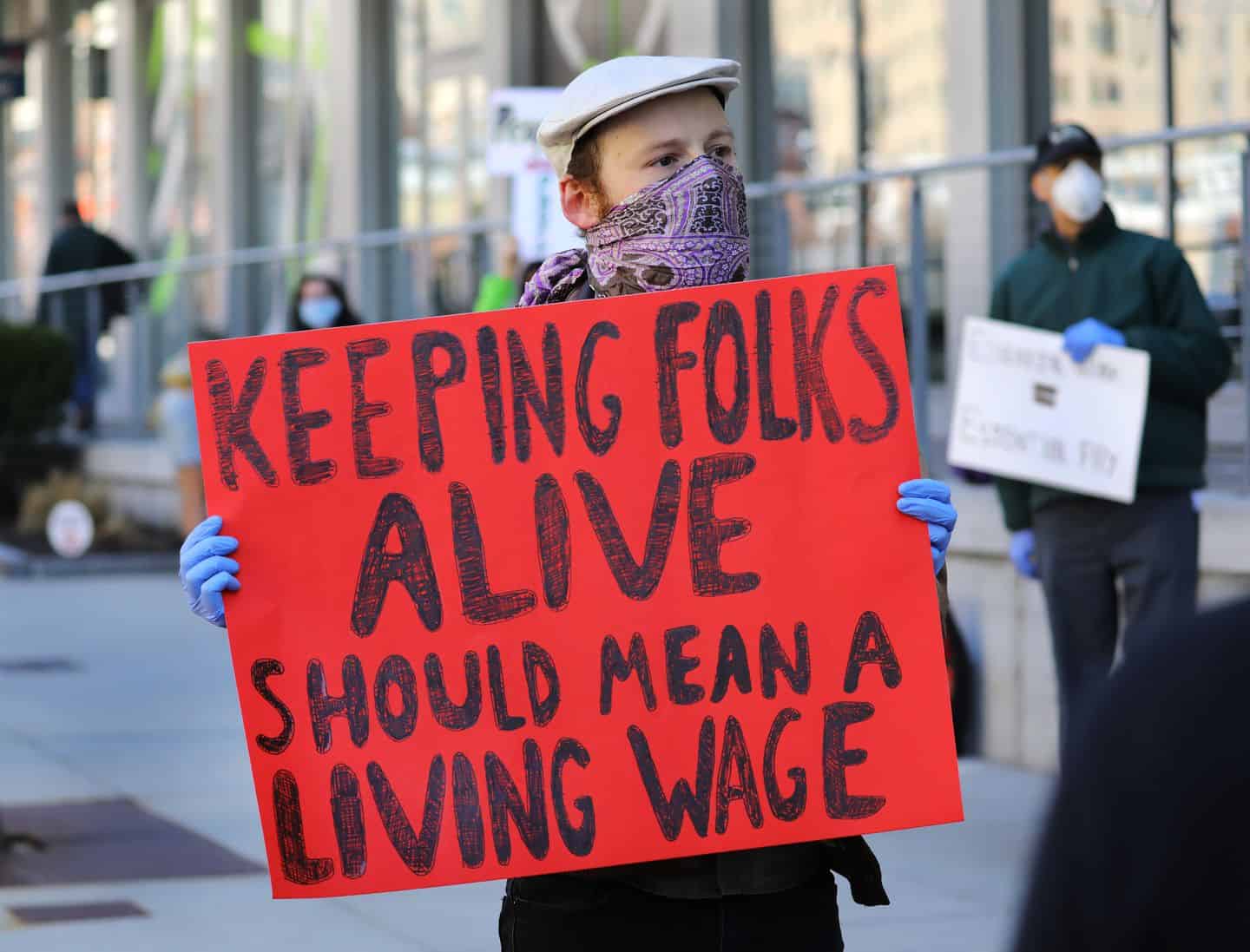
Fred Messner is a student at Harvard Law School.
Thousands of nurses are set to strike this morning across the Northern California-based Sutter Health system. As California’s KCRA3 reports, the nurses have been in negotiations for a new contract for over nine months with Sutter continuing to rebuff demands for additional protective equipment, safer staffing practices, and higher wages for experienced workers. “We are striking because Sutter is not transparent about the stockpile of PPE supplies and contact tracing,” one nurse interviewed by KCRA3 explained. “They resist having nurses directly involved in planning and implementation of policies that affect all of us during a pandemic.” The strike is expected to involve approximately 8,000 nurses and last through the end of the day today.
Looking back to Friday, a federal jury in Colorado acquitted dialysis provider DaVita, Inc. and its former CEO of criminal violations of the Sherman Antitrust Act, dealing a second straight loss to the Justice Department in its efforts to use the Act as a weapon against abusive and anticompetitive hiring practices. As Bloomberg Law reports, and as we have occasionally discussed here at OnLabor, the Justice Department brought two pathbreaking indictments under the Sherman Act in early 2021, one against DaVita for concluding “no-poach” agreements with competitors and one against the owner of a Texas-based physical therapy staffing firm for criminal wage fixing. A Texas jury came back against the Justice Department last Thursday, and DaVita was acquitted the following day. While the twin verdicts are certainly disheartening for supporters of the Biden Administration’s efforts to wield the antitrust laws to protect workers, they are unlikely to be the last word on the subject. Other indictments are pending, and even though the juries in these cases found for defendants, the courts allowed DOJ’s legal theory endorsed to proceed in both instances. As one DOJ official noted, ““In no way should the verdict today be taken as a referendum on the Antitrust Division’s commitment to prosecuting labor market collusion, or on our ability to prove these crimes at trial.”
Finally, California lawmakers will hold a hearing on Wednesday, April 20th, to consider legislation that would protect job applicants from discrimination on the basis of off-work marijuana use. As Bloomberg Law explains, “[l]awmakers are trying to fill in the gaps to protect those who use a substance that 37 states and the District of Columbia have legalized for medical use and 18 states and D.C. have legalized for recreational use.” Democrat-controlled states such as New Jersey, New York, and Connecticut (but also Montana) have passed laws barring employers from taking adverse action against workers or applicants’ recreational use, but California has yet to do so. Moreover, the California Supreme Court held in 2008 that existing antidiscrimination laws did not require employers to accommodate marijuana use. The timeline of the California bill remains uncertain, but Wednesday’s hearing will be a crucial first step towards passage.






Daily News & Commentary
Start your day with our roundup of the latest labor developments. See all
December 15
Advocating a private right of action for the NLRA, 11th Circuit criticizes McDonnell Douglas, Congress considers amending WARN Act.
December 12
OH vetoes bill weakening child labor protections; UT repeals public-sector bargaining ban; SCOTUS takes up case on post-arbitration award jurisdiction
December 11
House forces a vote on the “Protect America’s Workforce Act;” arguments on Trump’s executive order nullifying collective bargaining rights; and Penn State file a petition to form a union.
December 8
Private payrolls fall; NYC Council overrides mayoral veto on pay data; workers sue Starbucks.
December 7
Philadelphia transit workers indicate that a strike is imminent; a federal judge temporarily blocks State Department layoffs; and Virginia lawmakers consider legislation to repeal the state’s “right to work” law.
December 5
Netflix set to acquire Warner Bros., Gen Z men are the most pro-union generation in history, and lawmakers introduce the “No Robot Bosses Act.”